Part One of the annual Monolith Cocktail ‘choice albums’ list: The Beach Boys to Bassekou Kouyate.
Happily devoid of a rating system and far too polite and gracious to produce a ‘best of’, the Monolith Cocktail’s annual choice list is merely a guide to the blogs most personally enjoyed, played and celebrated records from the year.
Expect the usual ‘polygenesis’ mix of elegiac Baroque pop, progressive electronica, neo-Krautrock, desert sauntered blues, homeland meets day-glo bhangra, and halcyon-languid psych; listed in alphabetical order.
The Beach Boys ‘Made In California’ (Capitol/ Universal Records)
A sort of ‘best of best ofs’ anthology, collating a concise history of ‘Californ-i-a’ favourite sons, this six-disc sprawl of studio takes, alternative versions and, in some cases, previously unreleased material, plots the Beach Boys highs and lows (pretty much every release after 1976’s 15 Big Ones qualifies as a low point). From burgeoning home-taped doo wop rehearsals and frat-surf to the meta-textual American landscape chronicles of SMiLE and Holland, nothing is left out.
Nestling as it does, next to a litany of similar ‘complete sessions’ and ‘deluxe’ editions and box sets, Made In California raises the question of worth. So much of this material does already exist for sure; though almost half of it is rare, if not appearing for the very first time. Umpteen million compilations, covering a myriad of themes –under the ‘Love Songs’, ‘Greatest Hits’, ‘Singles’ or various affixed ‘Surfin’ titles – have it’s true dug up or reshuffled their entire back catalogue, but there hasn’t been one definitive tome piecing it all together yet.
As a complete purview of the group’s history and chronicle of fifty years, covering every turn and representing each individual member fairly, this collection could be considered the best attempt yet to build that concise story.
A full review can be found HERE.
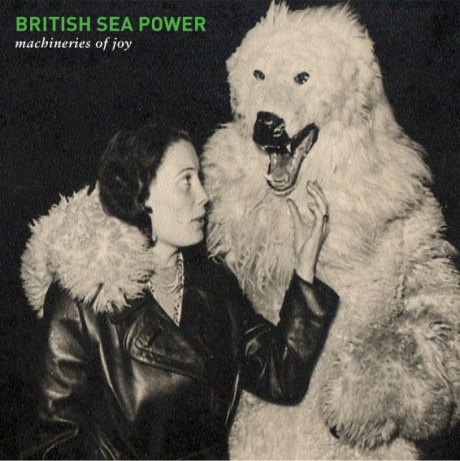
British Sea Power ‘Machineries Of Joy’ (Rough Trade)
British Sea Power once again embark on a literally ripe peregrinate excursion through the tedious inept and moral vacuum of modern life. Not so much a smug condemnation or snide shot across the great unwashed and uneducated bows, the erudite, fey, Brighton residences stick to the formula that has so far served them well critically (though not yet commercially).
A full review can be found HERE……
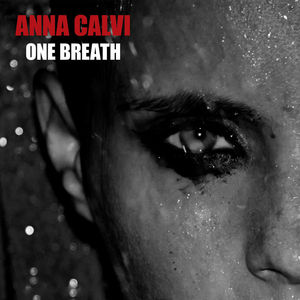
Anna Calvi ‘One Breath’ (Domino)
The French Lieutenants woman meets elegiac toreador blues, the second album from the fragilely poised, but resolute, Anna Calvi takes the tremolo suffused signature on a voyage of discovery. From Spector infused power ballad pop to 80s sulky disco, Calvi channels Siouxsie Sioux, ESG and PJ Harvey, over a Andy Goldsworthy-esque production.
A haunted beauty permeates, exemplified on the opening catacomb recorded ‘Suddenly’: building from a methodical attentively cooed intro into a tumescent rallying hymn, a signature that resonates into the next track, ‘Eliza’. That triumphant, stamping call of thunder is this album’s ‘Desire’, though even better with its patterned tom rolls and a rousing whirlwind vocal delivery it is indeed one of the years most startling, broody pop songs.
The full review can be found HERE……
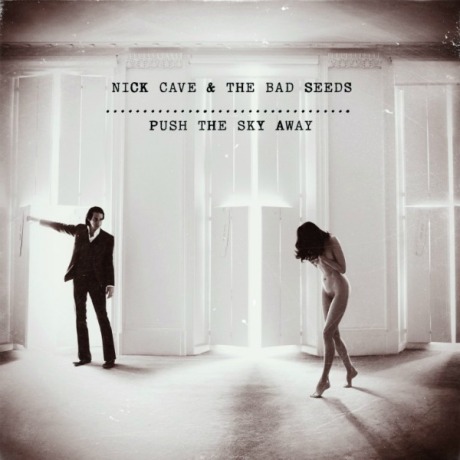
Nick Cave & The Bad Seeds ‘Push The Sky Away’ (Bad Seeds Ltd.)
Arguably Nick Cave and his miscreant troupes most mature, sophisticated and luxuriant suite yet, Push The Sky Away is a compelling deliberation, capturing the modern anxieties and travails of contemporary life in the Antipodean’s adopted home of Brighton & Hove – a psycho-geographic story first set out in the pages of Cave’s The Death Of Bunny Munro.
Cave’s Rasputan bearded, grizzled foil, Warren Ellis once again adds a certain primal cry of wantonness and chaotic despair to the deep velvety, Cohen like, vocals, as the the Seeds provide a ponderous and often broody backing.
Venting and questioning the philosophically challenging themes of our present digital age, Cave envisages a strange alter-world in which Miley Cyrus (and this was written before the crude twerking and wrecking ball controversy) floats in a pool and exasperates at waiting in queues, as the Higgs Boson particle whizzes around, underneath the Swiss landscape. A dualism of trivial and the meaning of life crossing paths to prompt, irk or pose the anxious questions of the day.
You can also catch my Nick Cave & The Bad Seeds Glastonbury performance epistle HERE…..
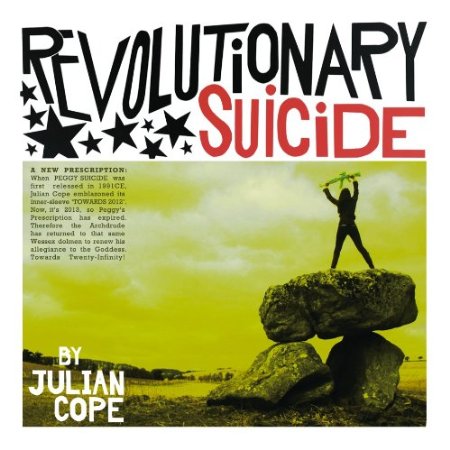
Julian Cope ‘Revolutionary Suicide’ (Head Heritage)
Wielding aloft the ‘clarion call-to-arms’ weapon of choice, the AK-47, under the borrowed Huey Newton autobiographical book title, Revolutionary Suicide, Julian Cope promises confrontation yet surprisingly delivers a rather melodic and poised protestation – pitched somewhere between The Standells and Love, but maintaining residue folk-angst reverberations from his last incarnation, Black Sheep.
The usual totems of organised religion, liberal cowardice, and apathy still provide fertile themes for Cope to attack, whilst a leitmotif of resigned ageing permeates throughout (dolled out to the raver generation now approaching their mid to late forties but facing the most depressing indictment that their once rebellious youth and spirit has since been pacified and adopted into the malaise of the establishment).
Not so much hectoring then, or even bombastic, the arch druid of counter culture picks apart his prey with élan; attacking both failed revolutions from the here and now; lambasting the church; and bravely taking issue with the perceived – though the evidence does suggest that there is indeed a silent conspiracy – erasing from the history books, media and political stage the horrific Armenian genocide of 1915, by the then Ottoman government: an episode, it must be said, that is hotly contested and hushed up to this day; the organised extermination of the country’s christian minorities – which also included a number of Assyrians and Greeks too.
Amongst Cope’s most striking, purposeful and sophisticated denunciations yet, I would argue that Revolutionary Suicide is a career high.
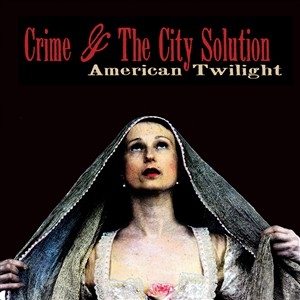
Crime & The City Solution ‘American Twilight’ (Mute)
It’s quite apt that a band whose close bond with the last Antipodean entry, also makes the Monolith ‘choice’ list; producing perhaps one of their most plaintively laid bare, but triumphant apocalyptic masterpieces yet.
Relocating to Detroit after a twenty-year hiatus, via their native homeland and a sojourn spent mopping and brooding around Berlin, Crime & The City Solution pen an augury opus to the motor city. A bankrupt city now in a dreaded spiral of decay, with its inhabitants leaving in droves, a sign of the times and the age to come.
Imbued by the fore-bearers of that very esteemed original punk and jam kicking metropolis, the group produce such beatific, choral backed anthems as, ‘My Love Takes Me There’ – a song that exudes a haloed magnificence, yet is equally darkened with distorted guitars and plaintive vocals that hail back to the bands earlier brooding soliloquies – and mature romantic fare like ‘Goddess’ – an Apache toms-beaten power paean to a mythologized beauty and perhaps the bands most commercial anthem yet, though still permeated by those esoteric layers of lapsed Catholicism and scuzzy strident rock.
Read a full review HERE….
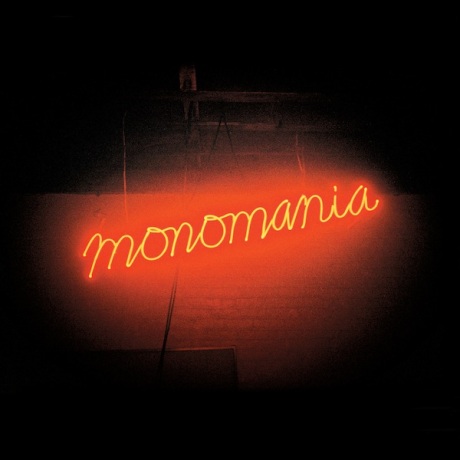
Deerhunter ‘Monomania’ (4AD)
Channeling the lost spirit of a crooning 50s ‘rock and roll’ star on his last outing, Parallax (review HERE), Bradford Cox transduced the ghostly reverb and tremolo of Joe Meek and Phil Spector into a therapeutic release. Attuned to the lingering sentiment and resonance of that 2011 LP, Cox once again merges the familiar with gently disjointed psych and experimental R&B in a way that sounds strangely unique; similar in fashion to the musical collages created by Ariel Pink – nothing inherently new in the source material but the approach and relationship is fresh.
Congruous yet split into two camps; Monomania displays both signs of the more awkward, off-kilter and vaporous with the melodic, and daresay even pop sensibility which serves Cox so well. Lighter, melodic treats include ‘Back To The Middle’ – a glorious slice of slinky soul and no-wave aloof – and ‘Dream Captain’ – merges 80s college radio with the Velvet Underground in a magical meeting of minds. Erring towards shoegazing serendipity, ‘Neon Junkyard’ and ‘Pensacola’ crash and klang with cuddled languid brilliance; at all times tethered to a tuneful shimmering backbeat.
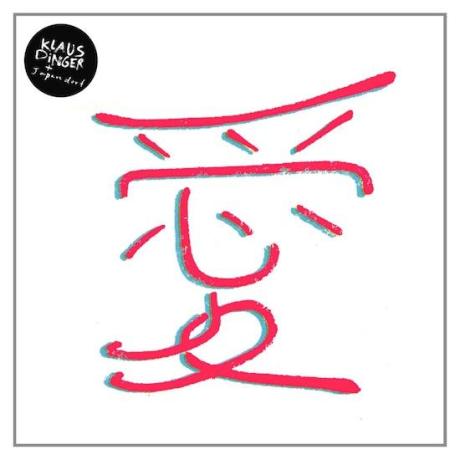
Klaus Dinger & Japandorf ‘Klaus Dinger & Japandorf’ (Grönland)
Klaus Dinger’s exploratory quest to encapsulate the new millennium can be heard as one continuous development. From the more humbled, organic early days spent in an incubated version of Kraftwerk, through the iconic Neu! and onto the traversing European, La Düsseldorf, Klaus kept on believing in the Krautrock vision, right up until his death in 2008.
Apart from his musical soulmate, Michael Rothar, the only constant force in Klaus’ craft would be the ‘motorik’ rhythm that he synonymously perfected: a drumming style that influenced and inspired a generation, even if its prevailing creator remains largely unfamiliar.
The project that began in 1976 with his brother Thomas, and Neu! sound engineer, Hans Lampe, La Düsseldorf euphorically mixed constructivist style utility wear and sloganism with a synthesiser vapored requiem, to an imagined utopia. Bordering on neo-punk, though far too melodious and optimistic to be apart of that scene, their sound had a certain universal appeal – Teutonic in nature, but the language flipped between English and German, and even French. David Bowie gushed that they were, “the soundtrack of the 80s”, not long after he pinched their panoramic sound for his own Germanic tour of duty.
By 1981 the group had breathed their last with Individuelles, though Klaus continued to release ad hoc recordings and scrapes of extemporised studio jams, much to the annoyance of his partners. Legal wrangling’s ensued and Klaus was ordered to cease using the La Düsseldorf label, an exercise he repeated with Rothar over the infamous Neu! 4 recordings in the mid 80s: another unsanctioned catalogue of half-forgotten ideas and unfinished meanderings.
Sticking to the principles of communal living and artistic freedom – laid down in the Krautrock era – Klaus never gave up, despite the disputes, as he entered the new century. Deprived of his home city’s title, he forged a new collective, bandied together from the local Japanese circle of contemporary artists, living in Düsseldorf. His partner and heir apparent, Miki Yui, his close friend, Marsaki Narkao and Kazuyuki Onouchi (who not only played drums, synth and bass but also recorded and mixed the final cuts) were the catalysts as Klaus opened up his studio for spontaneous outpourings of improvisation. In a patriarchal role, cultivating and ‘egging-on’ on his new comrades, who were initially unaccustomed to playing instruments and recording, Klaus found something inspiring in their incipient, ‘undaunted’ with expectations, nature.
Total immersion in a shared lifestyle, from socializing, camping and even cycling together, the amorphously fashioned Japandorf channeled their purely Germanic forbearers vision, via J-pop and kooky cyber psychedelia.
Glimmers of the project have leaked into the consciousness through various mediums, including the Internet. Officially left in storage, the Pre-Japandorf and Viva Remix 2010 albums have attracted a certain enigma, but this third volume is now graced with a ‘bona fide’ release after years of mythologized rumour.
Recorded both in Klaus’ industrialized urbane hometown and in his Zeeland seaside retreat (Netherlands), the loosely connected suite of experiments and musical sketches soar or fizzle out appropriately, depending on context.
Anthemic spikey-pop chants, such as the opening ‘Immermann Straße’ and new wave bubblegum, doo-wopping ‘Udon’, sound like Shonen Knife singing Krautrock’s greatest hits. Whilst the jerky, gnawing-phaser looping ‘Karnival’, features a shout-y Klaus having fun over a backbeat that threatens to collapse, as the timing between each bar grows ever wider apart.
It’s the cosmic sustained ring of Klaus’ resonating guitar that sends shivers down the ol’ spine, dominating as it does the ‘fantasque’ peregrination, ‘Sketch No.1-6’, and grandiose rebrand of the original La Düsseldorf trademark, ‘Cha Cha 2000’, updated to 2008 here. Transmitted from a Kraut-discotheque located on a space cruiser soaring towards the stars, the triumphant clarion call to hope is possibly their finest achievement.
Pining interludes counterbalance these more fiery, halcyon numbers. Conducting a ‘Kittelback Symphony’ Klaus’ blueprint groove meanders down a classically lit, romantic pathway. Placidly hazy with a gentle skipping beat, the plaintive gilded piano-swept instrumental finishes on a familiar recurring Neu! feature: running water.
The album ends rather poignantly with a chorus of church bells, ringing in the distance on ‘Andreaskirche’. Though the album was complete and ready to drop before his untimely death, the delicate, ambient outro relevantly chimes as a final farewell.
Inseparable from earlier incarnations, the affixed ‘dorf’ stamp is given of life by the Japanese collaborators whose electric candy kool aid adds life to the Dinger cause.
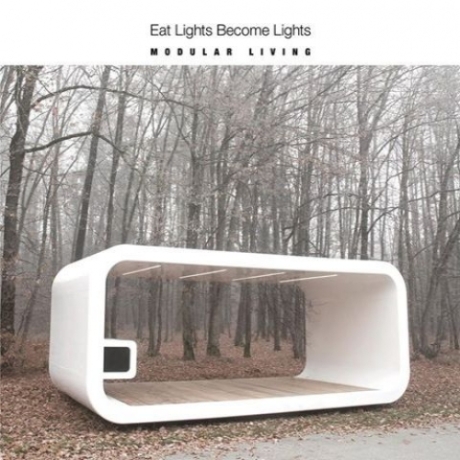
Eat Lights Become Lights ‘Modular Living’ (Rocket Girl)
There’s fierce, confrontational, abrasive and even ugly Krautrock, and then there’s the more refined, melodic and dreamy gazing form of Krautrock, of which London’s Eat Lights Become Lights are very much enamoured.
A band of two halves so to speak, the recorded version almost totally helmed and written by the group’s Neil Rudd, and the live version which swells to a concomitant quartet (that greedily includes two drummers), follow the investigative footsteps of those that precede them; riffing and then locking down into the pulsing rhythm of an idealised Dusseldorf, Berlin and Cologne landscape of the early to late 70s. Though many thousands have trodden this pathway already, the Lights manage to navigate a subtler passage of veneration for the likes of Klaus Dinger, Michael Rothar and Roedelius; honing the halcyon dappled structures and beatific synth-textured symphonies of Cluster, Harmonia and Kraftwerk to produce something quite majestic.
From the title track in we’re propelled ever forward on a sophisticated road trip across the nebula. Occasional stopovers slow the tempo down on the eastern tinged Eno lies back in contemplation on a drifting raft ‘Rowley Way Overlook’, and heavenly piano chorded Popol Vuh-esque ‘Los Feliz To Griffith’, as the Lights invite us to breathe in the view.
Finishing on perhaps the album’s most ethereal high note, ‘Habitat ’67′ could be either a glorious fashioned paean to the stylish furniture makers or an illusion to some utopian environment and time. Whatever the inspiration, it sounds like an afflatus mix of swelling classicism and futuristic bliss.

Fuck Buttons ‘Slow Focus’ (ATP Recording)
The progressive-electronica of their previous opus, Tarot Sport, now turns decidedly caustic and venomous on the follow-up, Slow Focus. The vaporous, simmering, raspy and kettle drum bashed voyages of discovery sounds like Basic Channel meets Sabres Of Paradise, holidaying on Yes‘ ‘topographic oceans’ whilst immersed in listening to The Wonderland Philharmonic‘s Shogun Assassin soundtrack.
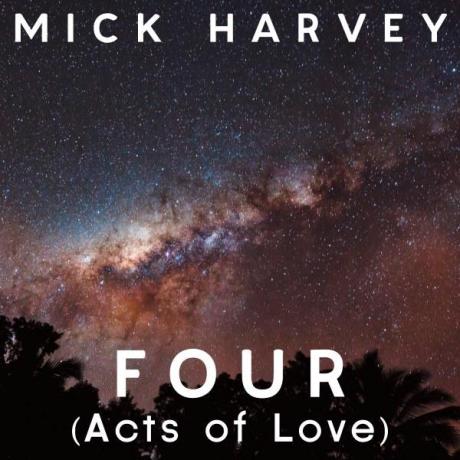
Mick Harvey ‘Four (Acts Of Love)’ (Mute)
Wearily beaten by the afflatus ‘hammer’ from above, Mick Harvey waltzes through an attentive cycle of concatenate forlorn and romantic paean on FOUR (Acts Of Love).
Imbued with, a seriously, impressive CV (Australia’s principle hardliners of elegant morose,The Birthday Party, Nick Cave & The Bad Seeds, and PJ Harvey’s collaborative producer on her successful Let England Shake) Harvey follows up the 2011 Sketches From The Book Of The Dead with a loosely threaded ‘four act’ concept.
Whistling vignettes (Midnight On The Ramparts), Wim Wenders’ pining desert song (Fairy Dust and the cover of PJ Harvey’s Glorious), and throughout, eye towards a prevailing hallowed presence, the endearing luxuriated Harvey burr and lyrical delivery remark on loves awkward synchronicity and heartache.
Channeling the pensive balladry of The Walker Brothers and rich sound of Grant Lee Buffalo, he pays tributary to a diverse cast of influences: covering songs by, fellow Australians, The Saints (the Stephen Trask redolent The Story Of Love), Van Morrison(an esoteric organ pitched The Way Young Lovers Do), Exuma (meandering jazz version of Summertime In New York) and the ‘other’ synonymous man in black, Roy Orbison (wistfully sad take on his Wild Hearts).
Divided into sweeping ‘universal contemplation’ sonnets and brief stirring segue ways, the album’s perfect running order is set out like a wanton play on vulnerability from an antagonist, worn down but not yet taken over by cynicism.
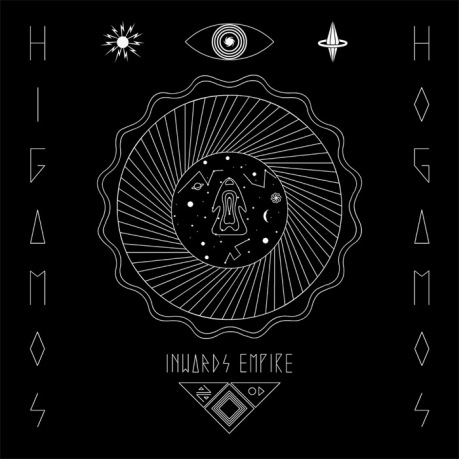
Higamos Hogamos ‘Inwards Empire’ (Upstairs Recording)
Smoothing out new musical peregrinations into the expanses of a well-travelled Krautrock imbued cosmos, Steve Webster’s, nonsensical moniker, Higamos Hogamos troupe are back with yet another ‘fuzzy majesty’ release of live instrumentation and diaphanous analogue twiddling.
For his – introspective alluded – latest jaunt, Inwards Empire, Webster with fellow transient travellers, Dr. Andrew Robertson (guitar) and Whetham ‘Whethmo’ Allpress (drums), looks to Tangerine Dream, Klaus Schulze, Hans- Joachim Roedelius and Ash Ra Temple for inspiration. Though the titular track is imbued with both elements of quasi-Funkadelic cosmic slop jungle wah wah, and a growling bassline that wouldn’t sound out of place on Brain Eno & David Byrne‘s My life In The Bush Of Ghosts.
However the orchestral stabbing ‘Dendron’ sails closer to Hawkwind, and the jilted vocal featured, lead guitar strangulated hoot, ‘Cold 100′, is anyone’s guess. The main thrust as usual is quality.
Bassekou Kouyate & Ngoni ba ‘Jama Ko’ (Out Here Records)
‘Jama Ko’ translates as “a big gathering of people”, a gesture of tolerance and peace in tumultuous times, which Kouyate hopes will go someway to unifying the cultural spirit of his homeland.
Acclaimed not just in Mali but on a global stage, his debut album Segu Blue, and Grammy nominated follow-up I Speak Fula both attracted critical success, whilst recent appearances on Nonesuch Records’ AfroCubism project, and the Africa Express showcase have brought attention to one of the ngoni’s most accomplished practitioners.
Highly articulated, adroit and at times feverish, Kouyate’s bedazzle strokes arc between attenuate meditation and blazing solos: at times so rapid as to be a furious blur.
Whether exalting harmony or singing the praises of Mali’s more stoic historical highlights, Kouyate is joined by a cast of equally accomplished and revered artists and family members, including his two sons, Madou and Moustafa – the latter not only lending his name to the album’s closing dedication, but penning it too.
Fellow Mali compatriot, the sweet-voiced Kasse Mady Diabate, accompanies him on the Latin-tinged Bedouin song, ‘Sinaly’; a reference to the 19th century Bamana King, celebrated for his resistance to the Islamic hoards, now soulfully resurrected as a present day example of defiance.
Further collaborations include the tripartite call for peace, ‘Kele Magni’, which features Kouyate’s wife Ami Sacko, and the quivered vibrato of ‘The Nightingale of the North’, Khaira Arby: a most mesmerizing performance.
Not so much a vocal duet – bar the odd grunts and snarling growls – Kouyate shares the stage with ‘Delta blues boogie’ patriarch, Taj Mahal, on ‘Poye 2’. Ponderous and lumbering, the pair stride the desert landscape like stalking beasts; flickering and bending notes as they appreciatively eye up each others licks: Taj maybe a long way from home, but his ‘Statesboro blues’ style settles down perfectly with the contrasting tribal Mali vibes.
The ranks of Kouyate’s ‘ngoni ba’ christened band, have seen some changes with the talented“ngoni ace”, Abou Sissoko, and – on a trio of compositions – the respected Bamako born multi-instrumentalist, Zoumana Tereta (Krinyani, Soku fiddle, Bonfile flute), both on board.
Entrenched in the sounds of North West Africa, Jama Ko was also host to influences outside the continent. Montreal-based producer, Howard Bilerman (Arcade Fire, Godspeed) helped record the LP in Mali, before whisking it back across the Atlantic to co-produce and mix in Canada. Bilerman also brought in the talents of the Barr Brothers (Brad and Andrew) on guitar and drums, and Mocky Salole (Feist, Jamie Lidell) on string arrangements and additional drums.
The added production has given the Mali sound an extra ‘oomph’ and charismatic, sonorous resonance, without stripping away the ethnicity or original sound palette.
Full review and context can be read HERE……
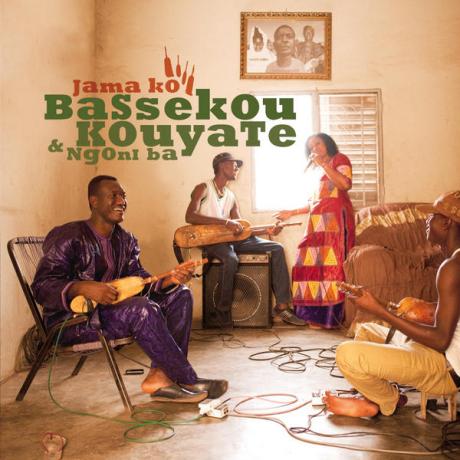
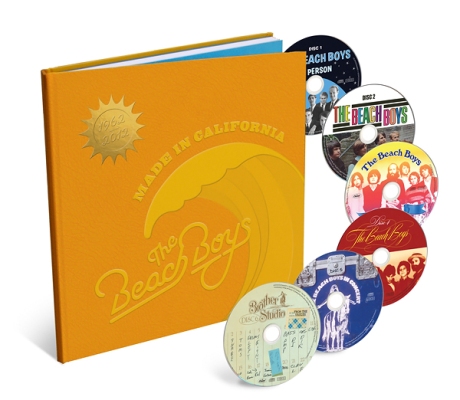
[…] fellow founding member and stalwart Mick Harvey missed out on the group’s mid-life opuscule, Push The Sky Away: an album that surely marks a pinnacle in meditative […]
[…] just the most recent one, five years after the release of the last Crime And The City Solution opus American Twilight – itself, the first album by the iconic alienated nihilists turn beatific augurs of […]
[…] Einstürzende Neubauten, whilst co-founder of the Love Parade, Picciotto, is a stalwart member of Crime And The City Solution. Both have crossed paths on numerous occasions, notably joining forces with Paul Wallfisch and Mick […]